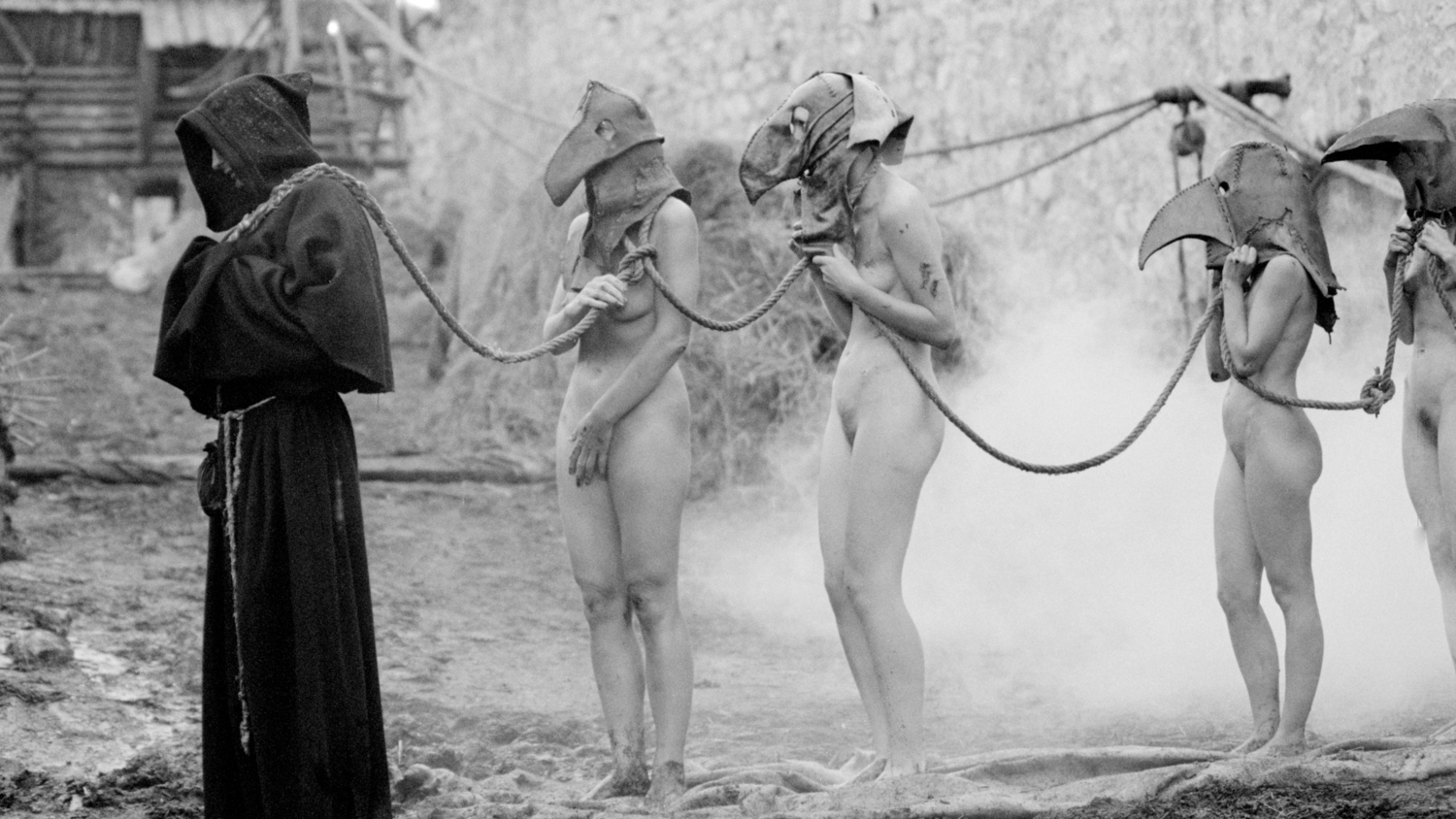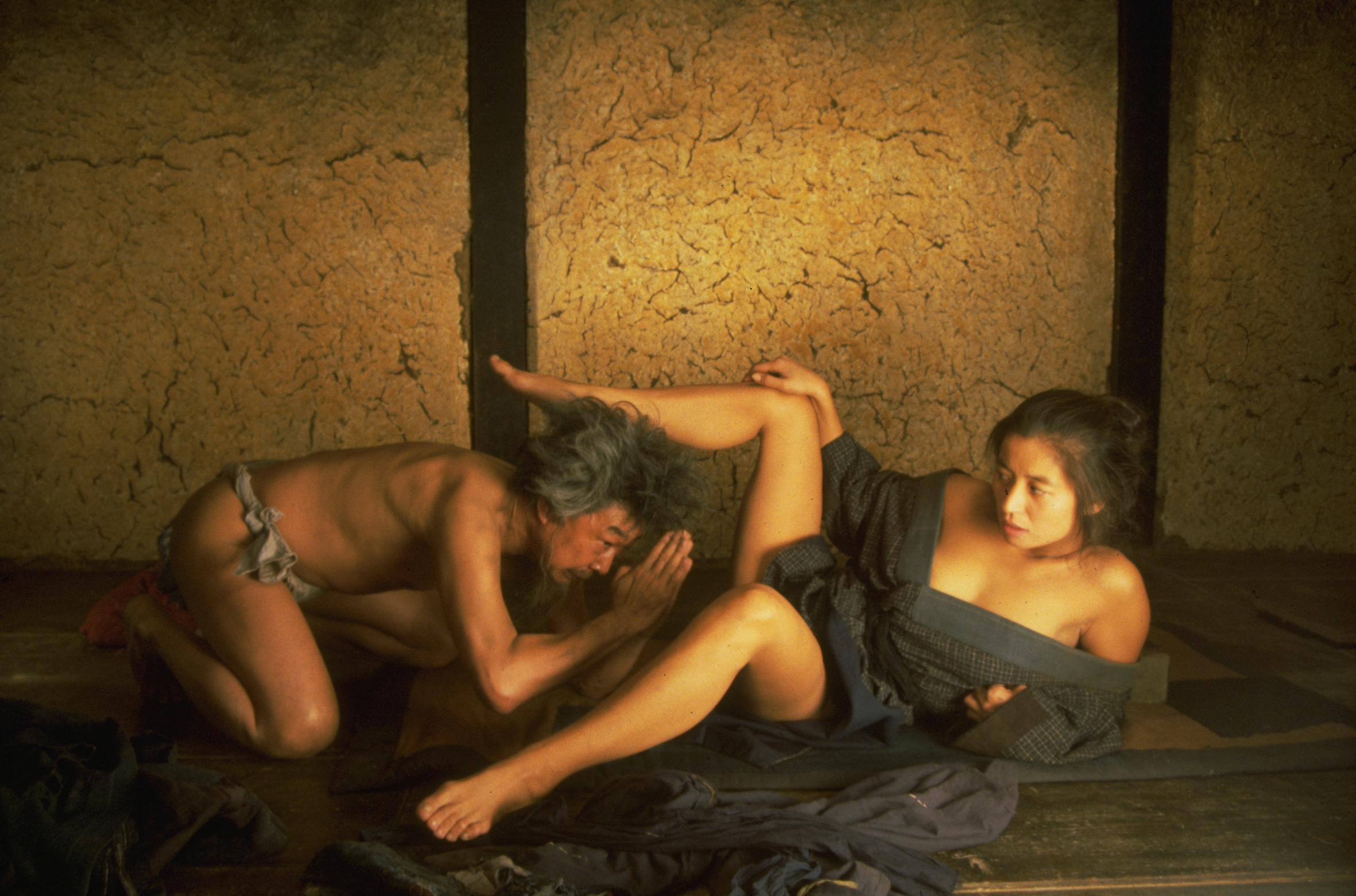What’s actually wrong with the Weinsteins? Part One: Wu xia
 When I heard the news that the Weinsteins had acquired Peter Chan’s Wu xia I responded in the way I normally do upon hearing of the Weinsteins picking up the rights to a new Asian film, mostly with frustration and anger. I was at Cannes, where the film was about to premiere, and had also just found out that I wasn’t going to have the opportunity to see the film there. The level of my frustration was rising sharply.
When I heard the news that the Weinsteins had acquired Peter Chan’s Wu xia I responded in the way I normally do upon hearing of the Weinsteins picking up the rights to a new Asian film, mostly with frustration and anger. I was at Cannes, where the film was about to premiere, and had also just found out that I wasn’t going to have the opportunity to see the film there. The level of my frustration was rising sharply.
So, when a fellow writer turned to me at dinner and asked “What’s your problem with the Weinsteins anyway? What’s actually wrong with them?”* I responded with a fair amount of anger and very little eloquence. It’s a very good question though and one that I intend to answer as best I can in this, and future posts.
Wu xia certainly seems to be a good starting point when discussing this question as it reflects one particular area in which the Weinsteins are reasonably consistent in their actions and also an area in which their impact on a variety of films is an almost entirely negative one.
At the time of writing, according to IMDb, Wu xia has been released in the following countries:
China 4th July 2011
Indonesia 7th July 2011
Singapore 21st July 2011
Hong Kong 28th July 2011
According to The Numbers the film has so far taken $29,272,914 worldwide, against a reported budget of $20 million, but outside of festival screenings the film has not been seen in many major regions, including America and Europe. Whilst it’s hard to get a firm grasp on the differences there is a lot of evidence to suggest that the film has screened in different countries in a few different cuts, ranging from 111 minutes to 117, with changes reportedly having been made to remove a shot of an ear being sliced and scenes featuring Chinese folk songs.
When the film was bought by The Weinstein Company in Cannes in May 2011 The Hollywood Reporter broke the news with a quote from Harvey,
Harvey Weinstein called Chan “true artist and with Wu Xia he has created a dream project, combining two of my favorite genres: film noir and martial arts.”
Four months later and Peter Chan was apparently in the midst of working on the US cut of the film,
@wildgrounds @TheGoldenRock Peter Chan just said at the HKU talk that he is currently working on the US cut (and that seems to be a pain!)
— Aurélien Dirler (@adirler) September 30, 2011
@wildgrounds @TheGoldenRock He said US distributors are the most complicated to work with. So many guidelines!
— Aurélien Dirler (@adirler) September 30, 2011
Flash forward to February 2012 and James Marsh filed a very interesting report on the film at Twitchfilm which included the following information on the US cut,
…The film was being simplified to include “just the one story”, with any superfluous narrative being stripped away. Exactly what that consisted of, Chan either wasn’t entirely sure or wasn’t willing to divulge, but the impression I got was that he was not involved in the process very much at all.
Marsh also mentioned that,
What Chan told me this evening is that the Weinsteins had been crafting a “leaner, pacier” cut of the film for the US market, no doubt in response to criticisms that, for a film billed as a Donnie Yen actioner, it was surprisingly light on the old ultra-violence.
None of this is at all surprising.
The re-editing of films by the Weinsteins, with Harvey in the driving seat in particular, is legendary and has led to the widespread use of the moniker Harvey Scissorhands. The delay to the release of Wu xia is also not a suprise, with the Weinsteins picking up the rights to films, particularly Asian films, only to leave them languishing on a shelf for years. Examples, chosen from a very, very long list, include the following:
Shaolin Soccer – released in Hong Kong in July 2001 and America in April 2004.
Hero – released in China in October 2002 and America in August 2004.
Reign of Assassins – Released in China in September 2010 and still no sign of a USA release.
It’s been speculated that the delay to Hero’s release was down to the high profile release of Tarantino’s Kill Bill films, which Miramax were also releasing but perhaps more likely is the argument detailed here that suggests that the timing of the release was a decision designed to maximise the bonuses paid to the Weinsteins. If the film was released in 2001 and had underperformed, as was expected, the pair would have allegedly missed out on some rather lucrative bonuses.
The Weinsteins have had financial success with releasing Asian films long after their original release, Harvey often cites his repackaging of Iron Monkey (originally released in 1993 but re-edited and released in America in 2001) as a notable success, but even if one sees this financial success as a positive, it is greatly outweighed by the many negatives that this release pattern leads to.
To return to the example of Wu xia it’s important to focus on how the film will be seen by audiences outside of Asia and French-speaking Europe, the distribution area covered by The Weinstein Company’s distribution deal. When the film premièred at Cannes it was accompanied by a pretty aggressive marketing push, including a lot of trade publication advertising and a significant online presence. The film received pretty favourable reviews and seemed well on its way to building that all important ‘buzz’.
The film was released on DVD and Blu-ray in Hong Kong Kong in September 2011 and, of course, quickly leaked online to be downloaded many times by those unwilling to wait or pay. Those fans willing to be pay but unwilling to wait for a Western release imported the film, as is the trend amongst fans of Asian cinema. It is a trend though that is the result of these kind of ludicrous release patterns and the frequency with which Asian films are re-edited. Why wait two years for a hacked up version when you can get the original now. Asian films then under-perform because so many of those that would have paid to see it have already done so.
When Wu xia, for instance, finally reaches Western shores who is going to be left to watch it and it what shape will it finally make it there. This is still to be seen but I would be willing to bet that the number of people left who want to see it has significantly declined in the past year and the film will be very different to the one I saw many months ago. Having watched many of the ‘Americanized’ Weinstein cuts of Asian films I am quite confident too that the film will have lost a lot of what made it good in the re-editing process – if it doesn’t then it will be the first Weinstein edit of an Asian film not to.
The release surely then becomes something of a self-fulfilling prophecy as the only audience left are those most likely not too bothered by a film that has been ‘Americanized’ but they are also not significant enough in number to make it a particularly successful film.
We in the West are left with a, most likely, shoddy version of the film, released months, maybe even years after it was first released in Asia, a film that under-performs resulting in less money available to get behind Western releases of Asian films. What’s actually wrong with that? A lot.
*My memory of this conversation is a little vague but I’m pretty sure that this is a fair representation of what he asked.





